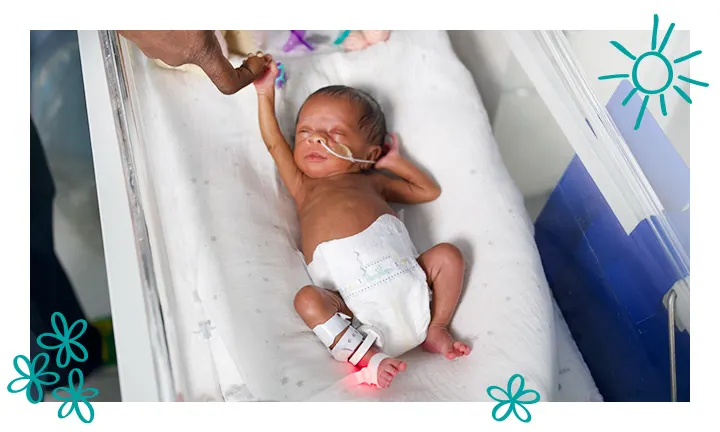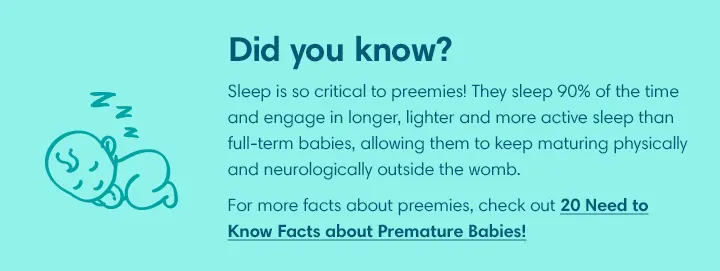All About High Dependency Unit
Premature babies are babies born before their due date and often require extra care. The High Dependency Unit (HDU) is a specialised unit in UK hospitals that looks after these babies. In this article, we will explore what HDU is in a hospital, the difference between HDU and a Neonatal Intensive Care Unit (NICU) and the benefits of having a dedicated HDU for premature babies.
What is HDU?
The meaning of HDU is High Dependency Unit. But what is a High Dependency Unit and what does it mean? This is a specialised unit for premature babies or babies that need extra care. This unit provides a high level of care, and your baby will be closely monitored and treated by a team of medical professionals. The HDU is designed to provide a safe and comfortable environment for your premature baby, with the aim of helping them to develop and grow.
High Dependency Unit Admission Criteria
Admission to a High Dependency Unit depends on each babies’ individual needs, which will be assessed by the neonatal care professionals. Often, premature babies born between 28 and 32 weeks or unwell babies needing non-invasive care will be admitted to HDU for monitoring and support.
Some special support and care that babies in HDU may need is support for breathing, feeding, receiving fluids, or treatment for jaundice.
Transition From HDU
Once your baby is well enough or needs less monitoring, they may be moved from the HDU to a lower level of care such as the Low Dependency Unit (LDU) or Special Care Baby Unit (SCBU). This is often the next step in their care before they continue their journey at home or in another setting.
The LDU or SCBU may also be where parents receive support and learn the basics for caring for a preemie at home.
There’s no predicting how long your baby will spend in each level of care – it all depends on the progress they’re making and how much support they need. But just know that wherever they are, you can be with them and they’re in the best hands!
NICU vs. HDU
A High Dependency Unit (HDU) is a hospital ward incorporated within the neonatal unit that provides a higher level of care than a general ward, but not as much as a Neonatal Intensive Care Unit (NICU).
A Neonatal Intensive Care Unit (NICU) is a specialised hospital unit that provides comprehensive care for newborn babies needing specialist care. This may be due to being born very prematurely or because of other medical conditions. The care provided in a NICU is more specialised and intensive vs. that provided in a High Dependency Unit.
A premature or newborn baby may transition from NICU to HDU once they’re well enough. Some babies may be admitted straight to the HDU for extra care if they’re stable enough after birth.
Here are some differences between the High Dependency Unit (HDU) and the Neonatal Intensive Care Unit (NICU):
| High Dependency Unit | Neonatal Intensive Care Unit |
|---|---|
| High level of care | Intensive level of care |
| Care provided for premature babies, usually between 28- and 32-weeks gestation | Care provided for extremely premature babies, born before 28 weeks gestation or with extremely low birth weight |
| Care provided for sick babies or those recovering from a serious illness | Care provided for babies with a serious illness |
| Babies may be in closed incubators or open cots | Babies may be in closed incubators |
| May require oxygen through their nose | May require ventilator support to breathe |
FAQS AT A GLANCE
A high dependency unit (HDU) is a neonatal unit that cares for premature babies or babies who need special care or support.
Babies in a HDU need less intensive care vs. those in NICU, but more support than those in LDU.
Some support they may receive in the HDU includes non-invasive breathing, feeding support, or treatment for jaundice. A baby in the HDU may be in a closed incubator or an open cot.
The Bottom Line
Hopefully this article has given you a better understanding of the High Dependency Unit and the care that is provided to babies within this unit. It’s important to remember that the neonatal care staff are highly trained to provide the best care and support for your little one. And they’re always there to answer your questions and work together with you and your family to give your baby the care they need.
For more information on everything you need to know about preterm babies and premature birth, you can check out the following articles:
Friends and families of babies born prematurely can now order their Pampers Preemie Protection Nappies online for free home delivery via www.pampers.co.uk/preemies-ordering-platform. Pampers also continue to donate Pampers Preemie Protection nappies direct to hospitals, and via ASDA pharmacies (in-store only and subject to availability)
How We Wrote This Article The information in this article is based on the expert advice found in trusted medical and government sources, such as the National Health Service (NHS). You can find a full list of sources used for this article below. The content on this page should not replace professional medical advice. Always consult medical professionals for full diagnosis and treatment.
Read more about Prematurity
Join Pampers Club and get:





